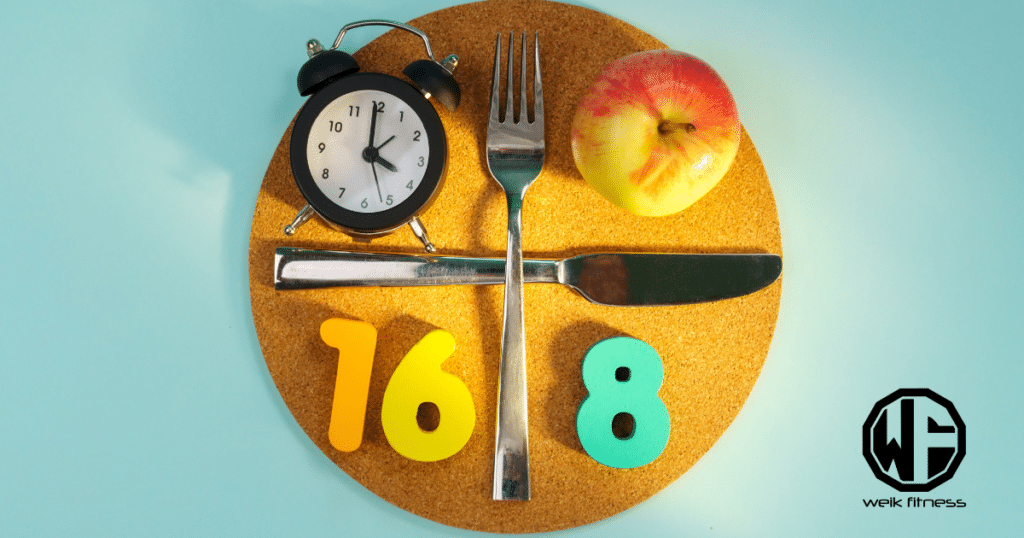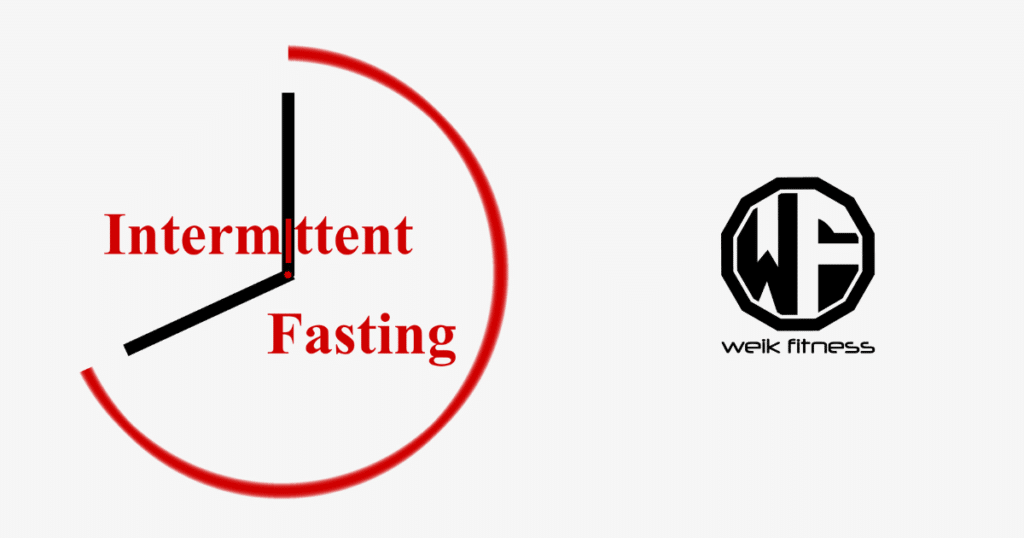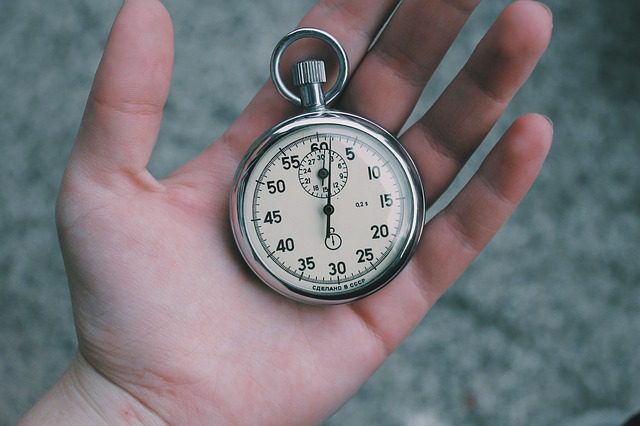Intermittent Fasting Guide: Everything You Need to Know
Intermittent fasting could be one of the most popular “diets” floating around these days. I personally follow it and I even have some of my clients utilizing the protocol as well. No, this isn’t some fly-by-night yo-yo type of diet like so many others, it actually makes a lot of sense and many say they can easily slide it into their lifestyle much easier than other diets.
There are many methods of intermittent fasting such as a 16:8 and a 24-hour fast (which happen to be the two most popular). However, if you’ve never tried anything like this before, I’d recommend the 16:8 before you try something a little more drastic like the 24-hour or even a 20:4 method.
What does all of this mean? It means you will go without eating (or drinking) any form of calories during your fasting window. You might think you are going to be starving yourself, but I ensure you, you’re not and your body will quickly adapt to not eating at your normal times.
Disclaimer: This article is for informational purposes only and is not meant to treat or diagnose any condition. It is recommended that you speak with your doctor before starting any exercise program, changing your daily nutrition, or adding any supplements to your regimen.
Table of contents

What is Intermittent Fasting?
In a nutshell, intermittent fasting (or commonly referred to as “IF”) is a diet that revolves around a fasting period as well as an eating period. These periods or “windows” depending on the intermittent fasting method you are using can be daily or even weekly and can continue in perpetuity if you wish to maintain the lifestyle.
Now, above I mentioned that many people enjoy intermittent fasting and say it fits their lifestyle. What do I mean by this? Let’s use the 16:8 method as that is the most commonly practiced. What this means is you have a sixteen-hour fasting period where you do not consume or drink calories followed by an eight-hour feeding/eating period.
Seems odd, right? It’s actually quite convenient – let me explain. We live insanely busy lives. We run around from place to place, meeting to meeting, not to mention a hectic home life if you have kids that need to be at various practices or places to meet with friends. Eating a breakfast, lunch, dinner, and fitting in snacks can be a hassle and something that eats up a good portion of your time/day and can cause you to be less productive. The 16:8 method allows you the freedom to be extremely productive and fill your day with whatever activities you wish without needing to remember to stop for a meal.
Related Article: Should You Try a 24-Hour Fast?
Many of you may have a raised eyebrow and may be thinking I’m absolutely nuts for saying you can skip eating for 16 hours, but trust me, there are many benefits that we will get to further into this article. But, let’s take a deeper dive into the 16:8 method and I’ll show you it’s not as difficult as you may think.

We all have the same 24 hours in a day. Many of us sleep for around 7-8 hours each night. When you sleep you are actually fasting without even thinking about it or assuming it’s bad for you. If you are fasting for 16 hours a day and you use up eight of those hours sleeping, you just cut your fasting time (while awake) in half!
Most people find they can get up and skip breakfast and move right into their first meal right around noon or 1pm. Such a method would allow you to eat from 12-8pm or 1-9pm. You can eat however many meals/snacks as you wish. Some people get away with one large meal with some snacks, others two meals, and some more than that. It’s truly up to you and how you want to fit in your daily caloric goals.
Then at 8/9pm, you would begin your fast. Not so bad, right? The 16:8 method is one of the easiest methods of intermittent fasting and one that majority of the people using it have no problem adhering to and using as their lifestyle diet. During your fast you can consume zero-calorie beverages such as water, black coffee, or similar beverage that do not contain calories.
The foods you consume during your eating window should be well-balanced and nutrient-dense but many have found they can slip in some “bad” foods every now and then without consequence (your individual mileage may vary).
What Are the Benefits of Intermittent Fasting?

Here’s where you can find pure gold. The research surrounding intermittent fasting is legit and no joke when it comes to the benefits that you can yield. Yet, with all diets, there may be some individuals who progress faster than others – and even some who might not see much difference at all. However, below are just some of the benefits that researchers have found when utilizing an intermittent fasting type of diet and lifestyle.
1. Weight Loss
Who isn’t looking to tighten up, drop some body fat, and overall watch the pounds gradually melt away? When you look at intermittent fasting as a whole, many have found that they consume fewer calories on a daily basis which can lead to weight loss. Studies have also found that through utilizing intermittent fasting, you can also increase your metabolism which can lead to greater weight loss[1]. It is said that your metabolic rate can increase as much as 3.6-14%[2].
Something else worth noting is that intermittent fasting can help preserve muscle mass and help prevent muscle loss when compared to other dieting methods[3]. This is great news as having more lean muscle mass means your body will burn more calories – even while at rest.
2. Regulate Blood Sugar
Many individuals suffer from diabetes which can be prevented through proper diet and food choices. Unfortunately, many include foods that send insulin levels to skyrocket and in the long-term, this can cause pre-diabetes or full-blown type 2 diabetes. Through implementing an intermittent fasting protocol, you can reduce your fasting insulin levels by as much as 31% and be able to decrease blood sugar by 3-6%[1]. This helps reduce your overall risk and chance of getting diabetes.
3. Boost Brain Function
It’s hard to argue the fact that all of us prefer to be on top of our game and sharp at all times. However, certain diets can actually put you in a brain fog and crush your cognition and brain function. Intermittent fasting has been found to improve brain function by aiding in generating new nerve cells[4].
4. Reduction of Inflammation
Inflammation is something that many suffer from whether it be the chronic kind in our joints or at a deeper level within us that can cause serious health conditions and disease. Following an intermittent fasting diet has been found to help reduce inflammation markers which in the long-term can help protect your health and longevity[5].
References:
- Barnosky, A. R., et al. (2014). Intermittent fasting vs daily calorie restriction for type 2 diabetes prevention: a review of human findings. Translational Research. 164(4), 302-311.
- Mansell, P. I., et al. (1990). Enhanced thermogenic response to epinephrine after 48-r starvation in humans. American Journal of Physiology. 258(1 Pt 2), R87-93.
- Varady, K. A. (2011). Intermittent versus daily calorie restriction: which diet regimen is more effective for weight loss? Obesity Reviews. 12(7), e593-601.
- Lee, J., et al. (2000). Dietary restriction increases the number of newly generated neural cells, and induces BDNF expression, in the dentate gyrus of rats. Journal of Molecular Neuroscience. 15(2), 99-108.
- Faris, M. A., et al. (2012). Intermittent fasting during Ramadan attenuates proinflammatory cytokines and immune cells in healthy subjects. Nutrition Research. 32(12), 947-955.


*Disclosure: This article may contain affiliate links or ads, which means we earn a small commission at no extra cost to you if you make a purchase through these links. These commissions help support the operation and maintenance of our website, allowing us to continue producing free valuable content. Your support is genuinely appreciated, whether you choose to use our links or not. Thank you for being a part of our community and enjoying our content.
PLEASE CONSIDER SHARING THIS ON YOUR SOCIAL MEDIA TO HELP OTHERS LEARN MORE ABOUT THIS TOPIC.





